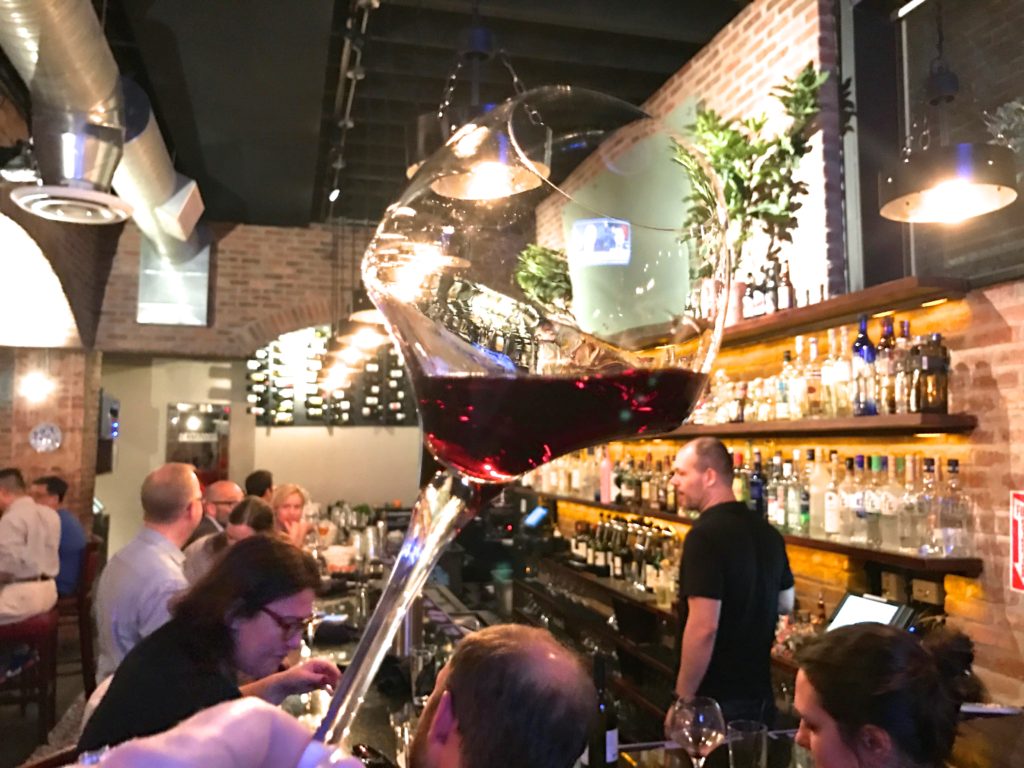Oct 17
Posted in:
Bang for Your Buck, Bon Vivant, Drink Well, Entertaining, Lifestyle, Restaurant Reviews, Travel, Wine Pairing, Wine Recommendations, Wine Reviews, Wine Tasting, Winemakers, Wineries and Vineyards
One of my favorite things about wine is how it so often interacts with culture, art, politics, history. In addition to the beautiful spread of mezze and interesting wines, these topics were at the forefront of a wine dinner at Agora I attended with Vinkara wines.
Wine consumption in Turkey is small, averaging just one liter per person a year. In fact, 80 percent of Turks do not drink alcohol at all and advertising within the country is currently forbidden, making the export business critically important to the success of wineries. However, the grapes are often ancient indigenous varieties which can be difficult for foreigners to pronounce. To say that winemakers are up against some particularly tough odds is an understatement.
It is a tumultuous time in Turkey, particularly for the nation’s wine industry. Current laws and custom stand in stark contrast to an ancient history of viticulture. Anatolia is said to be the birthplace of winemaking- scientific studies note the existence of winemaking in the region for 15,000 years. The vines have remained through millennia of turmoil and good fortune, war and peace.
It is often said that the best wines come from vines that struggle. In many parts of the world vines are partially deprived of water so that they seek deeper soil, adding strength and character to the plant and its prodigy. Just as vines that have grown more complex and resilient through struggle, the wines produced in Turkey are wonderfully complex, in spite of, and perhaps because of, the very struggles that they face.
The good news is, Vinkara has an incredibly passionate winemaker, Ardiç Gürsel, who is focused on revitalizing many of Turkey’s indigenous grapes with an eye on producing quality wines. She makes beautiful and complex wines at accessible price points- just $18 to $40.
Below, a few of my favorite wines from the beautiful mezze dinner with pairing suggestions. The overall quality was outstanding for the price, and while the names of these wines don’t exactly roll off the tongue, they are a pleasure to consume.
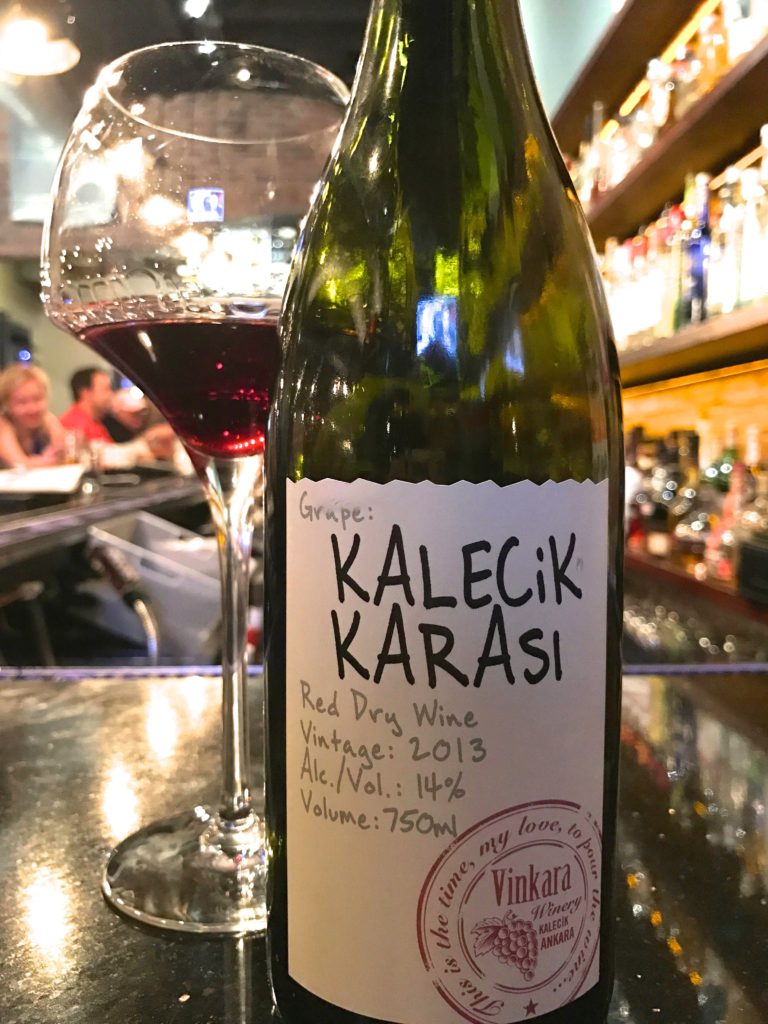
If you’re new to Turkish wine, here’s where I recommend you start! Kalecik Karasi is an ancient variety that is related to pinot noir. It’s all gorgeous red fruit, herbes de provence, and earthy minerality. Light bodied, immensely approachable, and a great pairing with a variety of foods. Average Price: $21.
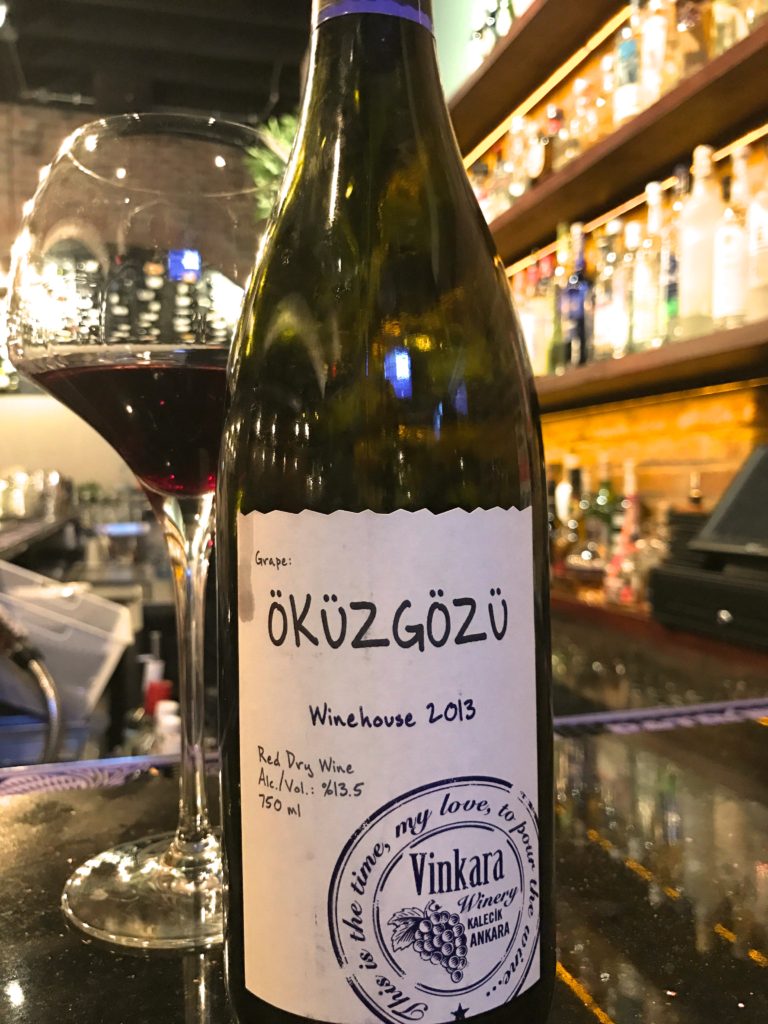
This wine has a slightly more intense body style. I got a lot of raspberry, cherry notes, coffee, and baking spices. Medium tannin, medium acidity. Pair with meat or heavier pasta dishes. Average Price: $18.
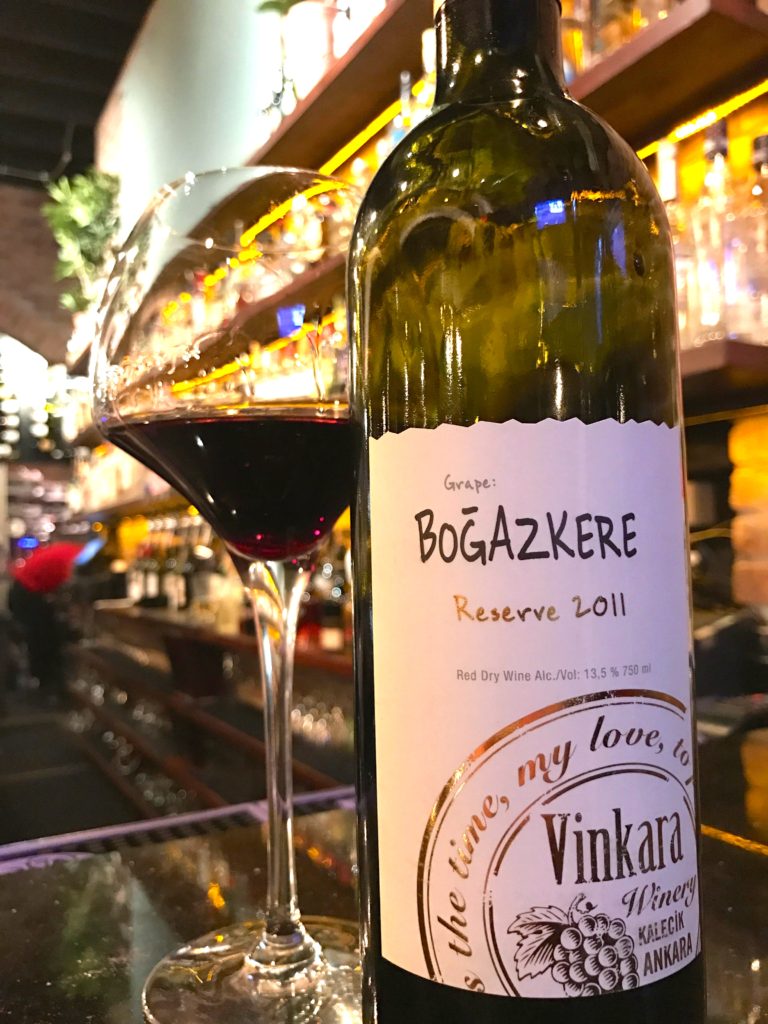
This reserve wine was the most full bodied of the night, with brooding tannins. Chocolate, dark fruit, and licorice on the palate. It deserved some time to decant and open properly to reveal beautifully integrated fruit and a voluptuous body. Pair with rich stews and red meat. Average Price: $24
Have you ever tried Turkish Wine?
Read More
There comes a time of reckoning for everyone in the food and wine business. The search for balance between hedonism and health is a fine line, and one that is finally being discussed in an industry where consuming 5 course meals and entire bottle(s) of wine in an evening is not so uncommon.
Over the past several months I’ve made some changes to my lifestyle in terms of what I consume. Don’t get me wrong, I still LOVE wine and won’t ever be giving up cheese, bacon, or even bread. But months of too many Taco Tuesdays had my closet silently admonishing me; I decided to make some lifestyle changes.
But how do we achieve balance in a culture that often glorifies busy and trivializes authenticity and quality?
Now, I’m either eating right or I’m really indulging- there’s not much of a middle ground for me. It’s either green smoothies and salads, or the cheese plate and vintage port, please!
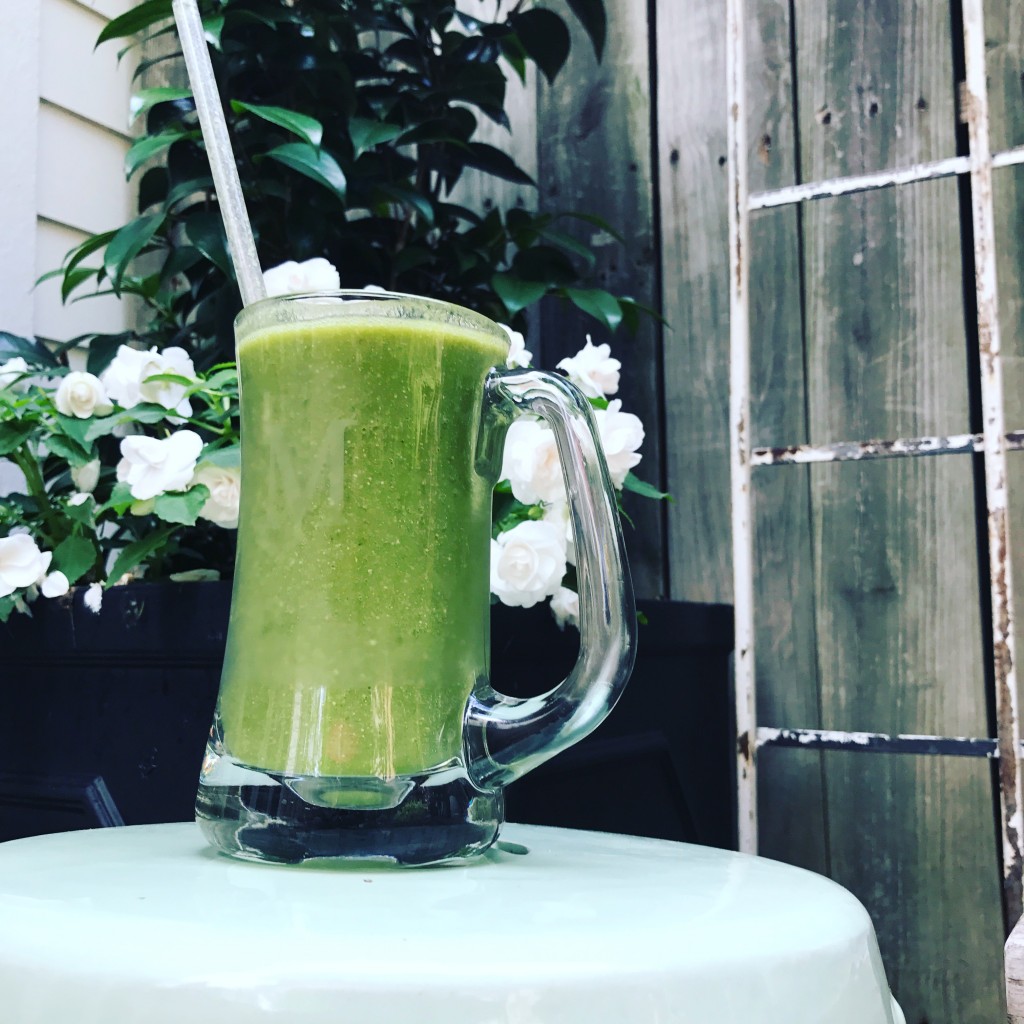
I’ve also dedicated days and weeks without alcohol- shocking, I know, but I find that these resets are particularly helpful after an indulgent vacation. I also make it a point to get to the gym and train with a trainer- Andrew Schneiderman of Balance Gym. Not only does he keep me laughing while I sweat it out, but those appointments keep me accountable to my fitness in a way that a simple membership just doesn’t.
One of the interesting aspects of this change has been how much more conscientious I am when I do indulge. I try not to drink mediocre wine and if I’m going to have something like tacos, they’re no longer of the Chipotle variety. Not only has this created a healthier balance, it’s made me far more conscientious about my indulgences and I really do feel healthier overall.
I have found that the products I’m consuming have a focus on authenticity and quality; typically, they’re also better for both the environment and my health.
If you’re a food and wine lover how do you achieve balance?

Read More
I would be remiss to not address my absence from writing. Several years ago I went to wine school and switched my hobby and my career- wine for politics. Like many, I have had a hard time writing about wine and lifestyle during a time when things seem dire. I’ve even considered dusting off my political resumé and getting back in the game to work on issues I care most about. Living in the middle of the nation’s capital can be both exciting and exhausting when tensions are this high. Dear friends and family members are estranged by ideologies in a way that I’ve never seen before.
Many wine and lifestyle writers are wondering if our duties perhaps lie elsewhere. And for some, they may. However, I have been reminded many times that the world needs all sorts, particularly during times of great stress. Our society and our lives would be rather bleak indeed without art, music, travel, the joy of sharing a great meal and great conversation.
And let’s be honest, more than a few of us have been reaching for wine bottles to soothe frayed nerves, regardless of how we feel about world affairs or where one lies on the political spectrum.
I was reminded recently of a lesson I learned over a decade ago in Greece while studying political philosophy and conflict resolution with The Fund for American Studies. I’ve written briefly about my time there. It wasn’t in air conditioned classrooms where I learned the most, but rather over hearty debates with a glass of local wine in under grape vined trellises, on breathtaking beaches over frosty glasses of Mythos, and on terraces watching the sun rise over Chania after staying out all night. There were myriad religions represented that summer. 19 countries. Countless opinions. At first glance there was far more to divide us than unite us- and yet, that’s what happened. I am reminded once again what we were taught that summer. The questions unite us and the answers divide us, which has perhaps never rung truer.
During a recent social media debate over a political issue things got rather heated, as they are wont to do. At long last, once the parties had agreed to disagree, I made a wine recommendation based on something I knew the other person would love. And then the strangest thing happened; I received an apology for something that had offended me in the dialogue. No Greek island required.
And I realized anew that perhaps it’s not just the questions that can unite us, but a shared bottle of a 2012 Brunello. Or a 2008 Champagne. Or a beautiful vintage tawny port.

Read More



